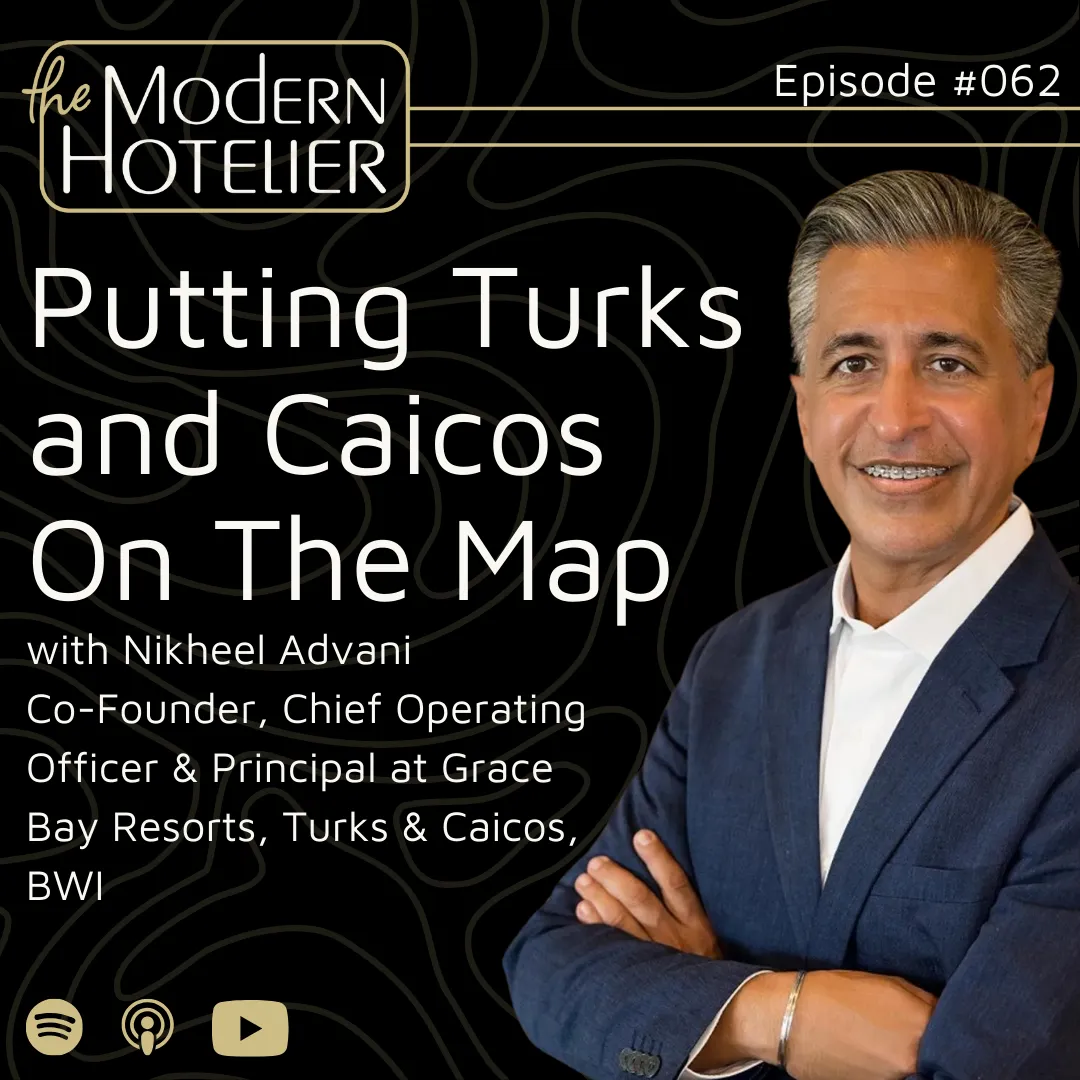Nikheel Advani is the COO and co-founder of Grace Bay Resorts and oversees overall operations, branding, sales, and marketing of resort development. He joined Grace Bay Club in August 2004 as the Managing Director, serving as the top operational executive in its expansion and renovation as it evolved from a $15 million, 22-room boutique hotel to a full-service luxury resort boasting 82 suites and residences, now valued at over $200 million. Most recently, he was responsible for the successful opening of the $100 million Veranda Resort & Residences in February 2010.
In this episode, David and Steve are joined by their guest Nikheel Advani, the co-founder, COO, and principal of Grace Bay Resorts in Turks and Caicos. Nikheel shares his inspiring journey from working odd jobs as a teenager to becoming a leader in the luxury hospitality space. He provides valuable perspectives on attracting and retaining talent, creating exceptional guest experiences, the importance of continued education, and trends like wellness travel and multi-generational trips. With wisdom from his decades of experience, Nikheel offers practical advice for young hoteliers looking to climb the ranks and thrive in this dynamic industry.
In this episode, you'll learn about:
- Global experience in hotel management
- The role technology plays in enhancing guest experiences at luxury resorts like Grace Bay
- Contributions to Turks and Caicos
- The importance of hands-on experience
Join the conversation on today's episode on The Modern Hotelier LinkedIn page.
The Modern Hotelier is produced, edited, and published by Make More Media: https://makemore.media/
Episode Links
Nikheel Advani
David Millili
Steve Carran
Steve on LinkedIn
The Modern Hotelier
Transcript
Automatic Transcription - please excuse any errors

